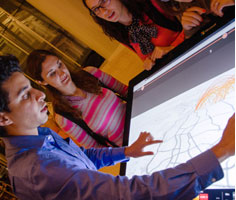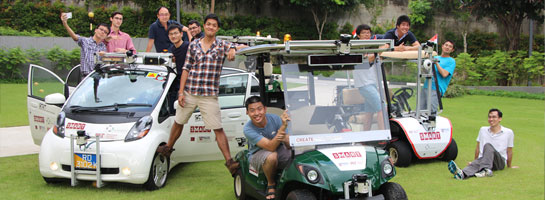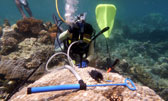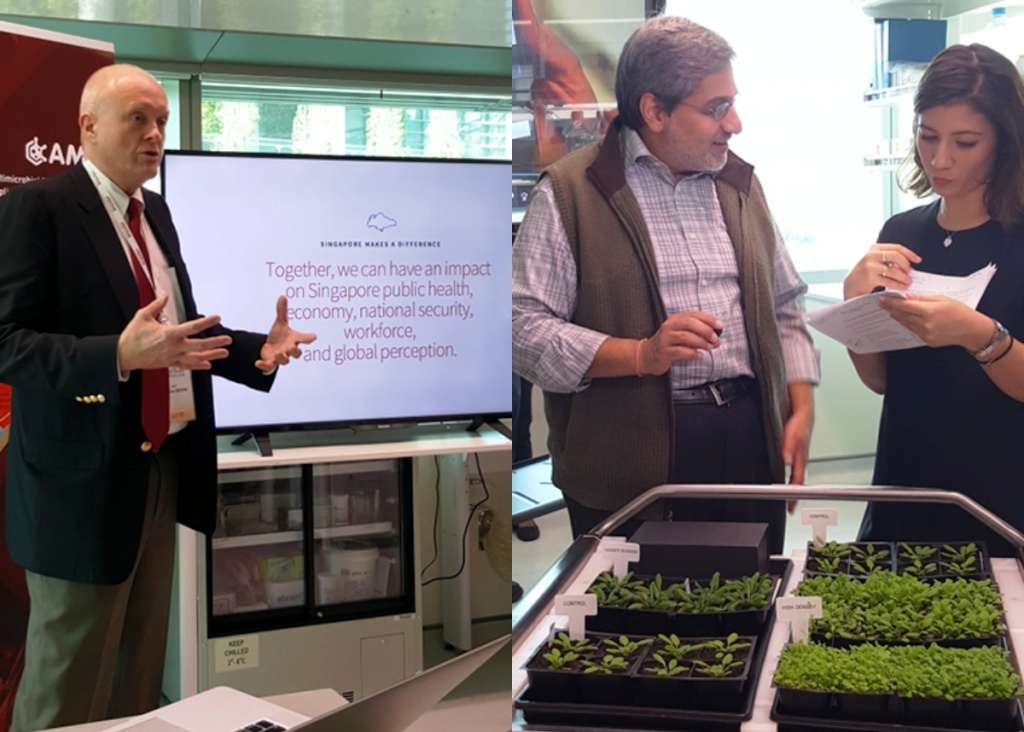




 (L) AMR Lead PI, Prof Peter Dedon and DiSTAP PI, Prof Rajeev Ram briefing media on the relevance of their research to Singapore and beyond
(L) AMR Lead PI, Prof Peter Dedon and DiSTAP PI, Prof Rajeev Ram briefing media on the relevance of their research to Singapore and beyond
To celebrate the 10-year milestone of the Campus for Research Excellence And Technological Enterprise (CREATE), two new SMART Interdisciplinary Research Groups (IRGs) were announced at the CREATE@10 Symposium.
The two new programs to advance Singapore's research collaborations for greater impact are:
Here is the excerpt from the News Release by Singapore National Research Foundation (NRF) and news in The Straits Times and Lianhe Zaobao.
Developing the Technologies for Precision Agriculture
DiSTAP IRG will be formed by SMART, in partnerships with Singapore universities and research institutions. Commencing in January 2018 for an initial period of five years, it seeks to develop nanosensor-based detection technologies to be applied in precision agriculture for the discovery, optimisation and translation of plant biosynthetic pathways for improved yields in production.
In the Singapore context, DiSTAP could contribute solutions to the challenges of urban food and nutrient production. The programme seeks to develop technologies for highly resource-efficient urban farming and generate economic value in the form of exportable technologies in innovative urban farming. While initially deployed for use in urban farming of leafy green vegetables, the nano sensors and optical technologies should have broad applicability in precision agriculture.
DiSTAP will be co-led by Professor Michael Strano from Massachusetts Institute of Technology (MIT) and Professor Chua Nam Hai from Temasek Life Sciences Laboratory (TLL). The research team will also include Principal Investigators from NUS and NTU.
Researchers will also collaborate with Greenphyto, a local developer of an automated vertical farming system, to ensure that Singapore small and medium companies could benefit from new technologies developed in the programme.
Professor Michael Strano, Carbon P. Dubbs Professor of Chemical Engineering, MIT, said: “The Disruptive and Sustainable Technologies for Agricultural Precision (DiSTAP) will utilise new techniques developed at MIT to help world-class Temasek Life Sciences Laboratory (TLL) produce the next generation of agricultural products. Using powerful nanosensor technology, we will tap and measure biochemical signaling pathways within the plant not possible until now. The TLL is well-positioned to capitalise on these advances. DiSTAP will engineer new plants to solve longstanding problems in agriculture and also translate these advances to state-of-the-art biomanufacturing technologies. The goal is to make the TLL and Singapore the technological hub for a new generation of agricultural research methods.”
Professor Chua Nam Hai, Deputy Chairman, TLL, said: “Temasek Life Sciences Laboratory (TLL) focuses on the development of innovative solutions to address realworld needs with the ultimate aim of improving lives and benefitting the society. By leveraging TLL’s plant biology expertise, we hope to contribute to the production of higher yielding plants and new systems that enable high-density urban farming. We are pleased to partake in this joint effort with these outstanding research and industry partners and look forward to the sustainable production of plant products for enhancing food sustainability in Singapore.”
Ms Susan Chong, Chief Executive Officer, Greenphyto, said: “A smart and hightech farm will require disruptive breakthroughs in Engineering, Science and Technology to be successful. We are excited to be part of this collaboration with eminent scientists from Temasek Life Sciences Laboratory and Massachusetts Institute of Technology to test and apply technologies for improving urban farming. This partnership will distinguish us from the global race and we look forward to more efficient and sustainable production of green leafy vegetables.”
Overcoming Antimicrobial Drug Resistance
An Antimicrobial Resistance (AMR) IRG will also be formed by SMART, in partnerships with Singapore universities and research institutions. Also commencing in January 2018 for an initial period of five years, it seeks to identify new antimicrobial drug resistance mechanisms, with the goal of developing new therapeutics diagnostics and drug delivery technologies and approaches, such as exploiting host immunity to kill resistant microbes.
Drug-resistant pathogens as well as emerging pathogens with the potential to become drug resistant represent a real threat to the public health and national security of Singapore. A significant 35-50% of bacterial infections in Singapore hospitals are now resistant to antibiotics (1). The AMR programme will apply novel technologies to seek to understand the biological mechanisms of drug resistance in microbes that are relevant to Singapore. The team will then exploit these mechanisms to create new approaches to identify and treat drug-resistant bacteria, parasites and viruses.
The AMR programme will be co-led by Professor Peter Dedon from MIT and Professor Peter Preiser from NTU. The research team will also include Principal Investigators from NTU, NUS, Duke-NUS, NTU/Lee Kong Chian School of Medicine and the Singapore General Hospital (SGH).
Professor Peter Dedon, Underwood-Prescott Professor in Biological Engineering, MIT, said: “It is a privilege to work with such a talented team of Singaporean and MIT researchers in the AMR research group. This group brings exciting new technologies to bear on solving the most challenging problems posed by antimicrobial drug resistance in Singapore and around the world. We are all eager to get moving!”
Professor Peter Preiser, Chair, School of Biological Sciences, NTU, said: “I am very excited about the unique opportunity the AMR research group offers to Singaporean and MIT researchers to work together to have a lasting impact on solving the global problem of antimicrobial drug resistance.”
(1) Hsu LY, Junxiong VP. Infectious Diseases and Singapore: Past, Present and Future. Singapore: Society of Infectious Diseases; 2015.